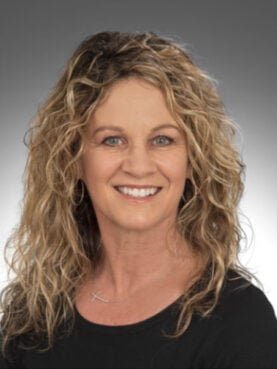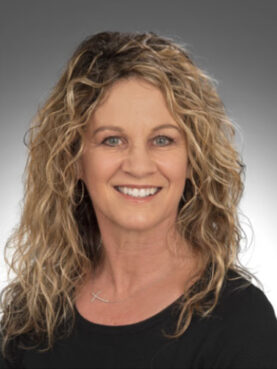
LANCASTER, Pennsylvania (RNS) — Many outsiders who travel to Lancaster County every year are drawn by the area’s reputation as the heart of Amish country. In fact, the rolling hills of the county west of Philadelphia, and Lancaster City itself, host a diversity of Christian faiths, with Mennonites and Anabaptists outnumbered by Catholics and mainline Protestants.
Such is the area’s historic religiosity that some call Lancaster County the heart of Pennsylvania’s Bible Belt.
But in recent years, an influx of transplants, particularly to Lancaster City and its suburbs, have made the area less religiously observant and more politically diverse. As the new residents have moved in over the past decade, clergy who have operated in a relatively homogeneous, small-town culture are navigating a landscape with new tensions. That friction has only been exacerbated by the difficulties of the pandemic and the widening gap between people of different political persuasions.
Amid this strife, the clergy of the Warwick Ministerium — an informal action and mutual support group for the Lancaster area’s pastors and other ordained Christian leaders — has been a source of calm and unity.
Missy Deibler. Courtesy photo
“Iron sharpens iron,” said Missy Deibler, a chaplain at the University of Pittsburgh Medical Center in Lititz, a small town north of Lancaster and ministerium member, using an expression from the Book of Proverbs. “You can be isolated in a church and a particular tradition, but when you hear how others are handling it, prayerfully talking and respecting each other, the Spirit really moves through the group.”
Clergy of different denominations and even different faiths have long gathered to share their challenges and create community among their flocks. The Warwick ministerium — named for the township that comprises Lititz and several other small towns around Lancaster — is no different.
Deibler said the ministerium’s 25 or so members had fostered “some really strong friendships, amazing support and wise counsel. It’s just a group that really cares for each other.”
The ministerium has managed to find common ground by developing new strategies to meet the challenges of a changing religious landscape, said the Rev. Jerry McGrath, pastor at Lititz United Methodist Church and president of the ministerium.
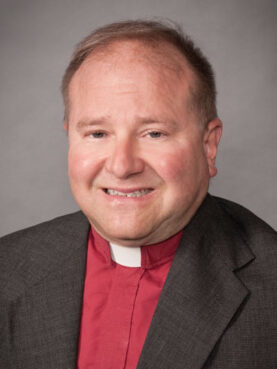
The Rev. Jerry McGrath. Courtesy photo
He offered the example of last November’s ecumenical Thanksgiving service, which had long been hosted at one or another of the ministerium members’ churches. The ministerium decided to move the 2022 service to the premises of Clair Global, an audio-visual production company in nearby Lititz. It drew more participants than it ever had before — precisely, said McGrath, because it wasn’t held in a church.
He congratulated the members of the ministerium for taking a countercultural approach. “Christ has always called us to lead, not control the future. What’s happening in our ministerium is exploration,” said McGrath.
But the recent culture clashes in the community have drawn the ministerium’s members into more controversial terrain. Last year, some local clergy supported a group of parents and area residents protesting books and curricula used by the Warwick School District, particularly those promoting discussion of social justice and gender identity.
The Rev. Ken Miller, a retired seminary professor who has served for nearly a decade as pastor at St. Paul’s Evangelical Congregational Church in nearby Rothsville, said he’s heard longtime residents say the newcomers “want the benefits of having that kind of community, but they want to change the ethos that actually created it.”
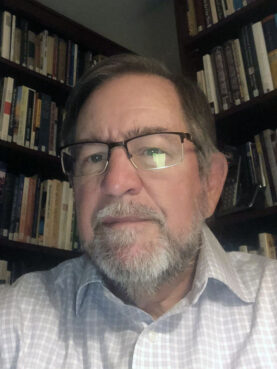
The Rev. Ken Miller. Courtesy photo
That includes religious expression in public schools. “Yet that kind of expression is a big part of what has created the unity within a whole area within the town,” said Miller.
Ministeriums can often help when times are hard, said Dr. Joyce Mercer, associate dean for academic affairs and a professor of practical theology at Yale Divinity School. “While many clergy are tired,” said Mercer, “in some contexts, being in an ecumenical ministry can actually be a kind of a respite from the struggle, because you’re not in it alone.”
In Mannheim, Pennsylvania, where the clergy belong to a separate, slightly smaller ministerium, the Rev. Kate Warn, pastor of Zion Evangelical Lutheran Church, said that her group had taken the isolation of the pandemic as an opportunity to read and discuss several books about racial issues. “We had time. A lot of things were shut down. It gave us a chance to get to know each other in ways that might not have happened … to learn and to grow together.”
There’s no denying that the social and political stresses of the COVID years and clergy exhaustion have taken their toll on engagement with the ministerium.
That decline parallels the community’s diminished religious feeling, some clergy say. St. Paul Lutheran Church in Lititz participated in the ministerium until recently by hosting a Good Friday service in the days before Easter, in which schoolchildren organized by TNT, a Lancaster-area youth ministry, played a big part. But as the school district has become more diverse, said the Rev. Robert Myallis, St. Paul’s senior pastor, it was harder to get kids to leave school to rehearse for what was clearly a religious service.
And some of the ministerium’s traditional activities, such as meeting with and praying for the police department and the school superintendent, are increasingly out of sync with the community Lancaster has become.
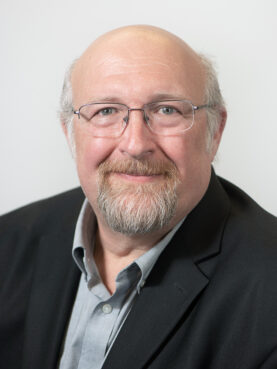
Scott Thumma. Photo by Shana Sureck Photography
“I could see how all the new challenges and stressful situations for clergy throughout the pandemic would have increased the need for them to reach out to each other in ministerial networks and support groups,” said Scott Thumma, director of the Hartford Institute, which studies church trends, in an email. At the same time, he wrote, “nearly every religiously oriented gathering has suffered during the pandemic,” with clergy reporting being stressed almost beyond capacity.
Myallis echoes Thumma’s concern about the future of ministeriums like Warwick’s, but said, “I think all of the churches are kind of figuring out who they are after COVID. In this small town, there is a tremendous desire by leaders to continue the deep sense of cooperation between government, church, education and business.”
“I think the leaders in this community will find a way,” Myallis said, but it will depend on the willingness of all clergy to acknowledge the reality of change.

